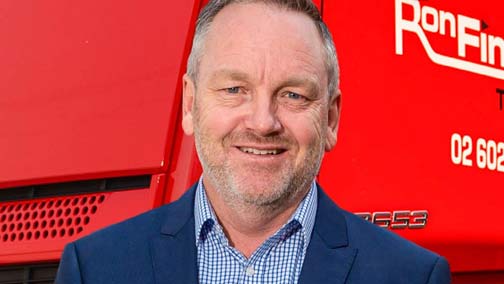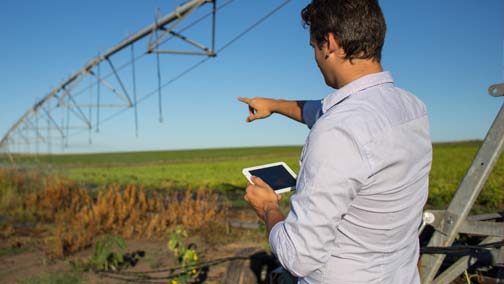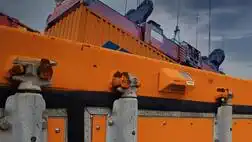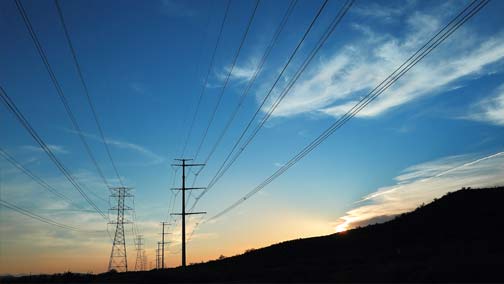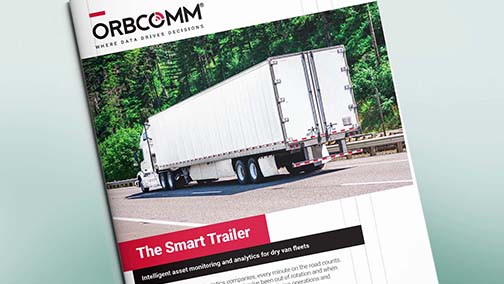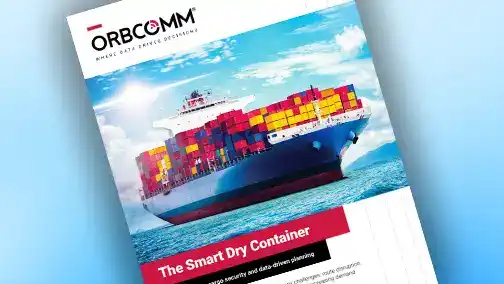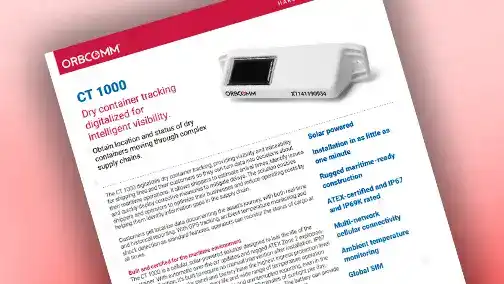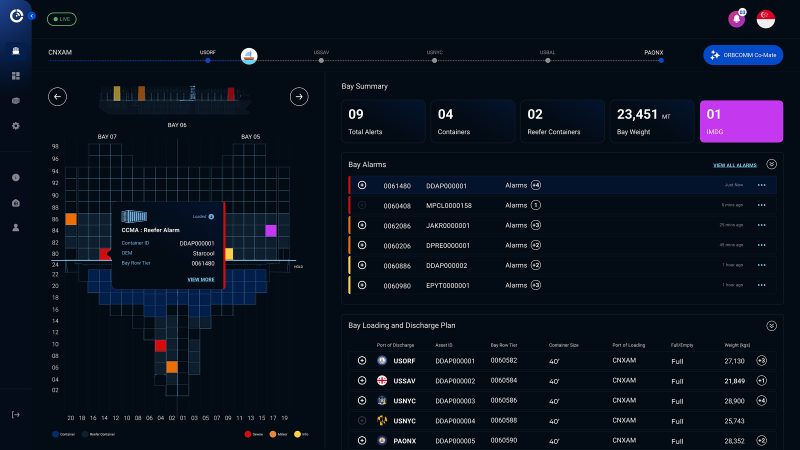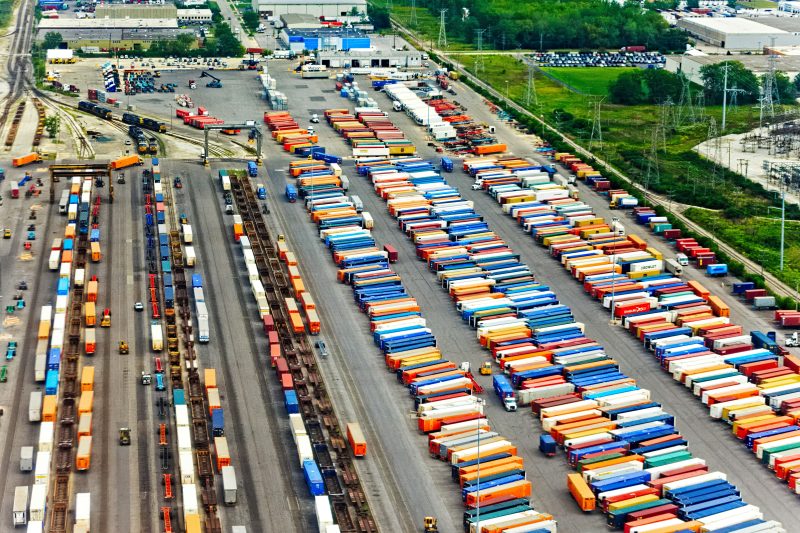UNIT45 Pioneers Smart Containers for the New Silk Road
- Blog
- Container Shipping
- UNIT45 Pioneers Smart Containers for the New Silk Road
Intermodal innovator UNIT45 is helping big name shippers like HP and Friesland Campina to take advantage of the New Silk Road linking China and Europe with a new breed of 45ft temperature-controlled containers optimized for long-distance rail operations. And it has turned to ORBCOMM’s CargoWatch® IoT telematics and cloud platform for essential remote monitoring and control of cargo and containers.
Headquartered in Rotterdam, the Netherlands, UNIT45 is a pioneer and industry leader in the design, construction, financing and delivery of 45ft containers for European intermodal transport operations across road, rail, short sea and inland waterways. Today, it offers the industry’s widest range of 45ft container equipment, from ‘standard’ dry freight units, to curtain-sided and refrigerated containers, to a host of specialist designs optimized for specific applications, including bulk, automotive and garment transport.
The Opportunity
With its entire focus on European intermodal innovation, UNIT45 naturally keeps a very close eye on trends in containerized railfreight. And arguably the most important of these is the New Silk Road. Also known as One Belt One Road (OBOR) and Belt and Road (B&R), this is China’s trillion-dollar initiative to revive ancient trading routes and relationships through the creation of a new Eurasian sea and land transport infrastructure, spanning Central Asia, West Asia, the Middle East and Europe.
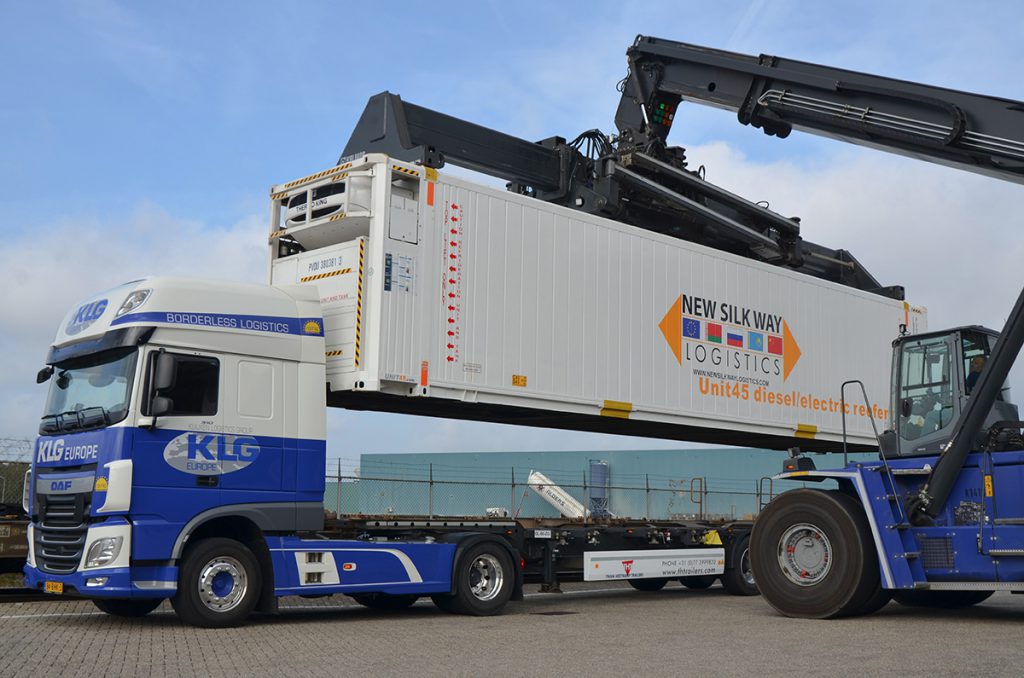
UNIT45 is a pioneer and industry leader in the design, construction, financing and delivery of 45ft containers for European intermodal transport operations.
OBOR, which covers both maritime ‘road’ and rail ‘belt’, was launched in public by Chinese premier Xi Jingping in late 2013. However, the introduction of long-distance container railfreight services between China and Europe dates back some while earlier. And for UNIT45, the journey started around six years’ ago, when company Managing Director Jan Koolen met Ronald Kleijwegt of electronics giant HP at a New Silk Road business event.
In 2010, HP had begun producing desktop and notebook computer in Chongqing, central China, at the western end of the Yangtse River. Dubbed the ‘land of the laptops’, Chongqing is home to leading global electronic brands and contract manufacturers and is reported to be the largest single PC production centre in the world. When a new rail option opened in 2011, HP began testing the viability of shipping finished goods overland 11,000km west to Germany, rather than sending them 1,700km east to the Chinese coast for long-dstance export by sea into Europe. Kleijwegt and his EMEA logistics team at HP wanted to use the rail route all year round to secure the faster overland transit time of 16-18 days versus 40-45 days for seafreight, and have a more streamlined transport chain, loading straight out of Chongqing all the way through to the giant inland hub port of Duisburg in Germany. But there was a problem.
A notebook can’t fall below a temperature of -20°C without potentially damaging its performance and invalidating its guarantee. However, ambient temperatures on parts of the long rail route snaking across China, Kazakhstan, Russia, Belarus, Poland and into Germany can drop to -40°C in the wintertime. What HP needed was a way to maintain the temperate of its containerized notebooks above -20°C in severe winter conditions. And UNIT45 set out to provide the solution, using reefer container technology not to cool the cargo, but to provide ‘conditioned’ transport to maintain the desired temperature.
“At that time, we had a European version of our 45ft dieselelectric intermodal reefer unit with a fuel tank of 250 litres,” recalls Koolen. Unlike marine refrigerated containers, UNIT45’s design has an integral diesel generator set to provide power where no electricity is available, making it ideal for long-haul rail. “But moving goods by rail from the center of China to Europe takes around 16 days door-to-door. So, we needed to provide a higher volume of diesel, because refueling in a temperature of -40°C is not a nice thing, especially if you have 40 or more containers on the same train that all need attention”.
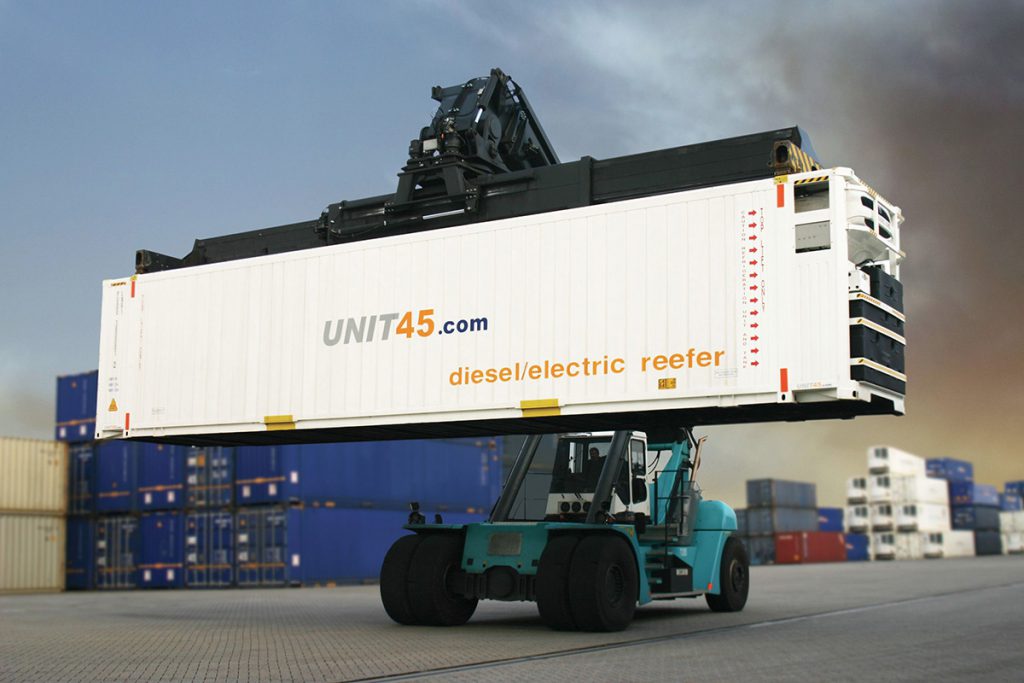
“We wanted to be able to remotely control the unit, such as adjusting the temperature, stopping and starting the reefer and so on. And we needed to have all this information, including alerts and alarms, directly on our computer screens in the office. All of that is given in the system we have right now with ORBCOMM” – Jan Koolen, Managing Director, UNIT45
The Solution
UNIT45 Technical Manager Jan Nouwen was therefore tasked with creating a ‘New Silk Road’ 45ft reefer unit with a fuel tank of 800 litres – enough to last 20-24 days – and the ability to load 33 europallets side by side inside the container for maximum capacity and cargo stability.
“The technical part was critical of course, but we also had to take care of operational realities,” explains Koolen. “In Europe, most goods are still transported by road accompanied, so there is a driver on hand to take care of everything. But this isn’t the case on the New Silk Road routes. What we needed was an advanced track and trace system where we could see the location of our units – including geo-fencing – and monitor what was happening with them, including the container temperature, the diesel volume and the machine performance. We wanted to be able to remotely control the unit, such as adjusting the temperature, stopping and starting the reefer and so on. And we needed to have all this information, including alerts and alarms, directly on our computer screens in the office. All of that is given in the system we have right now with ORBCOMM.”
Under the agreement, ORBCOMM provides UNIT45 with a complete telematics package including hardware, installation, support, connectivity, device management and access to the CargoWatch® web platform. Due to the remote nature of the rail route, the devices fitted to the containers are dual-mode, automatically switching to satellite when there is no GSM coverage, to ensure uninterrupted service. The CargoWatch® platform is the ‘control tower’ where UNIT45 can keep an eye on the status of its containers and give its logistics customers and shipper end users access to do the same. Clients can then see the monitoring data on their own screens, on the web platform or via the ORBCOMM mobile phone app. Additionally, customers can get a download and can also interface with their internal enterprise systems via XML or API.
This level of visibility and control is vital for customer confidence, stresses Koolen. The New Silk Road routes are tough on equipment, both in terms of the harsh climate and the shock and vibration of rail transport. Trains pass through some very remote and underpopulated parts of the world where there is no access to service if something goes wrong. Telematics enables remedial action to be taken where possible – such as remotely adjusting the container temperature – or, where maintenance or repair is needed, allows advance arrangements to be made for a qualified technician and the right parts to be waiting at the earliest available point.
“If you talk about this type of transportation, telematics is one of the most important requirements to convince clients,” says Koolen. “Then they are completely informed and if something goes wrong they get an SMS or email advising them what is happening. That could be things like a diesel problem or a coolant problem. We can recognise things like the engine is not working because there is ice in the fuel or it’s like a milkshake because the diesel is dirty. This work is only possible to do with a control tower which is always overseeing what is happening, so if there is a failure, there is an alert and a responsive action is initiated.” He adds: “The amount of information that these systems provide on the container itself is also important both for maintenance planning and future improvements to design and manufacturing.”
Since its first work with HP, UNIT45 has continued to expand its involvement in the New Silk Road with climate-controlled container solutions for a growing range of users. One such is Dutch dairy cooperative Friesland Campina, which is now using UNIT45’s reefer equipment to ship milk powder from Europe to China. “If you are operating in this tough environment many products need conditioned transport, like milk powder, wine, soft drinks and pharmaceuticals,” confirms Koolen. “If we don’t have a system like ORBCOMM then for us it is impossible to sell units like this and so it is vital we have this in place.”
As well as being a key sales tool, telematics also provides a new business stream for UNIT45. Along with selling and leasing the container equipment itself, the company now generates revenue from clients who pay for data access on a Subscription-as-a-Service (SaaS) basis. This is a model that is expected to gain ground in coming years as new technology continues to reshape traditional approaches to container supply chain operations.
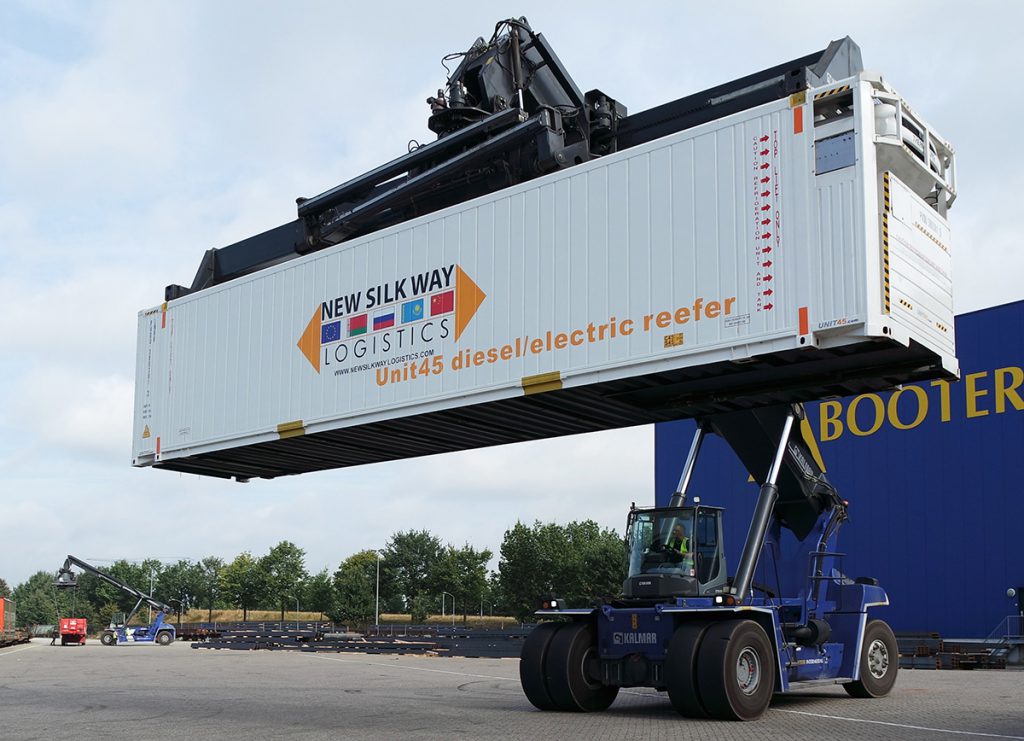
“If you talk about this type of transportation, telematics is one of the most important requirements to convince clients” Jan Koolen, Managing Director, UNIT45
The Future
Over the next few years, growth possibilities on the New Silk Road are “simply immense,” says Koolen, “especially for high quality goods that need to be in time.” Especially, he identifies pharmaceuticals as a “very important market for the future,” both on New Silk Road and other European intermodal rail routes. “Pharmaceutical companies want complete product stability and if you are talking about that branch of the industry the value of the cargo can be immense,” he says. “Temperature, humidity and g-force are all important and with our ORBCOMM system we are able to provide data on all these aspects.”
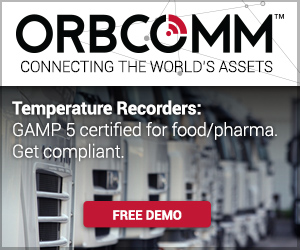 Over the past few years, UNIT45 has been working to get its diesel-electric reefer containers tested and certified for pharmaceutical transport in line with EU Good Distribution Practice (GDP) regulations and shippers’ own standards. The over-the-road transport market is already actively engaged in GDP compliance, and ORBCOMM has considerable experience here as a major supplier of GAMP5 certified temperature monitoring and recording systems. GAMP 5 certification is requested by major pharmaceutical companies to verify that data from monitoring systems is clean and tamper-proof. Now, “we want to be the first giving this information into the intermodal business,” says Koolen.
Over the past few years, UNIT45 has been working to get its diesel-electric reefer containers tested and certified for pharmaceutical transport in line with EU Good Distribution Practice (GDP) regulations and shippers’ own standards. The over-the-road transport market is already actively engaged in GDP compliance, and ORBCOMM has considerable experience here as a major supplier of GAMP5 certified temperature monitoring and recording systems. GAMP 5 certification is requested by major pharmaceutical companies to verify that data from monitoring systems is clean and tamper-proof. Now, “we want to be the first giving this information into the intermodal business,” says Koolen.
Telematics are also integral to UNIT45’s new environmentally-friendly reefer unit, featuring Carrier NaturaLine CO2 refrigeration machine, waterborne paint and Honeywell’s low global warming potential (LGWP) liquid blowing agent for the insulation foam. “This unit is absolutely the greenest unit in the world today and because we are intermodal innovators, again we wanted to be first on the market,” says Koolen.
Finally, UNIT45 is working with ORBCOMM on a simple, low-cost telematics solution for its dry boxes. Explains Koolen: “We have a big rental fleet and we want to know the precise location of our units in case of a client default, to help us with recovery.” In this case, a basic device fitted to the container will broadcast its location once a day. Like an insurance policy, Koolen says this type of information will offer the company important protection for its business. UNIT45 will be able to manage both its refrigerated and dry containers via the CargoWatch® platform, which is also important for business efficiency.
“Telematics really is becoming the most important thing in this type of business,” concludes Koolen. “If you don’t have telematics, don’t do it.”
Discuss the future of smart containers with ORBCOMM at Intermodal Europe… Intermodal Europe is the world’s leading exhibition and conference for the intermodal and container industries and covers all areas of container, transport and logistics across road, rail and sea. The 2017 edition is being held Amsterdam from November 28 – 30. Going to be there? We’d love to meet with you! Schedule a meeting with us.



